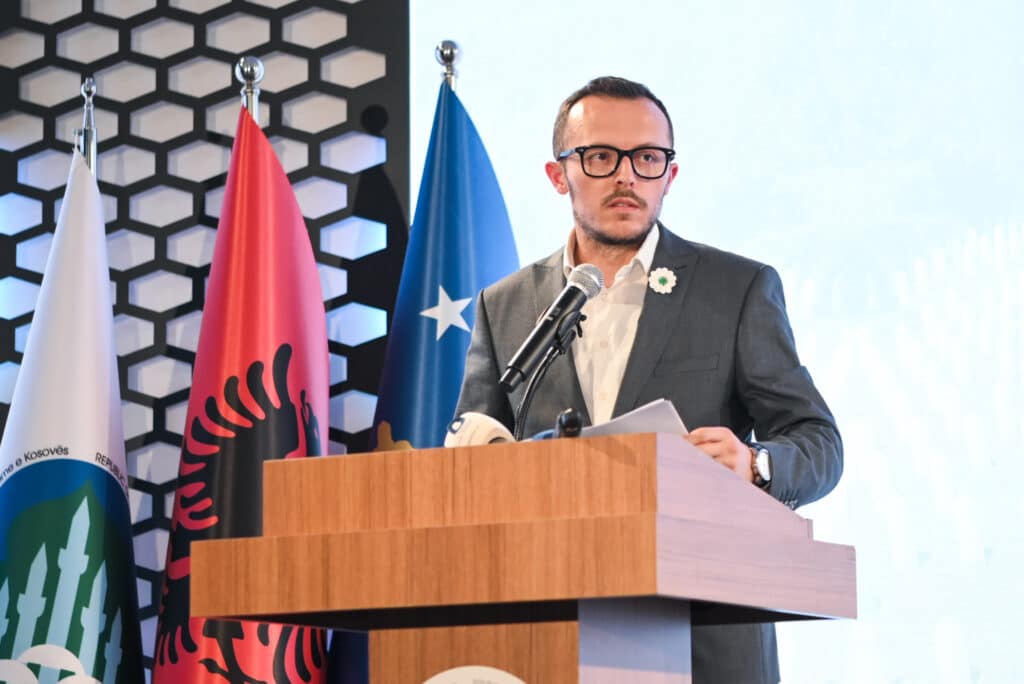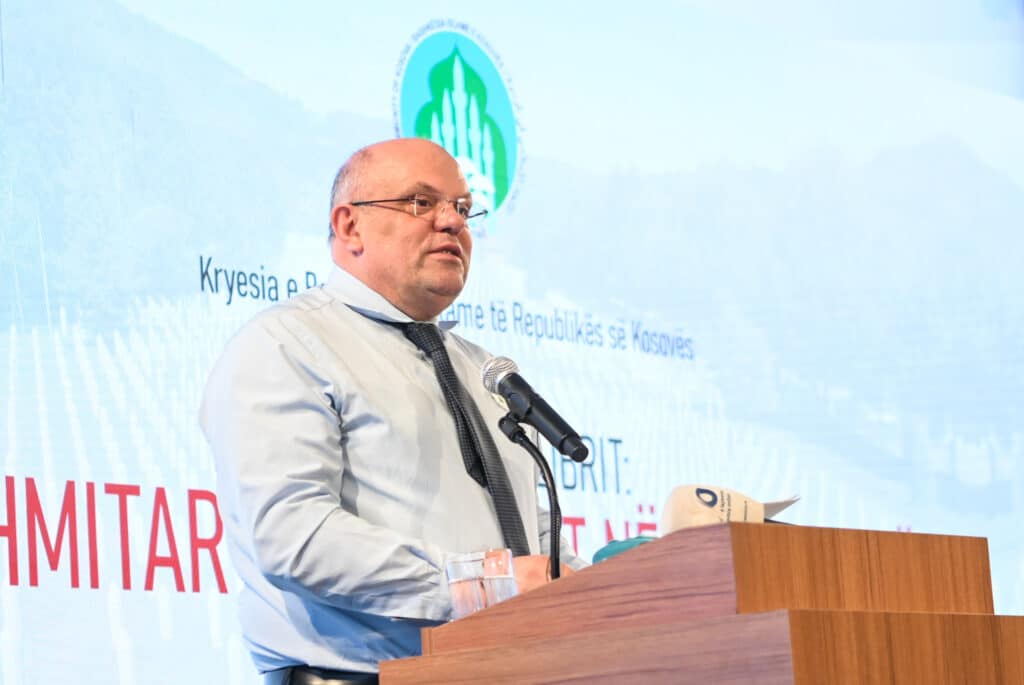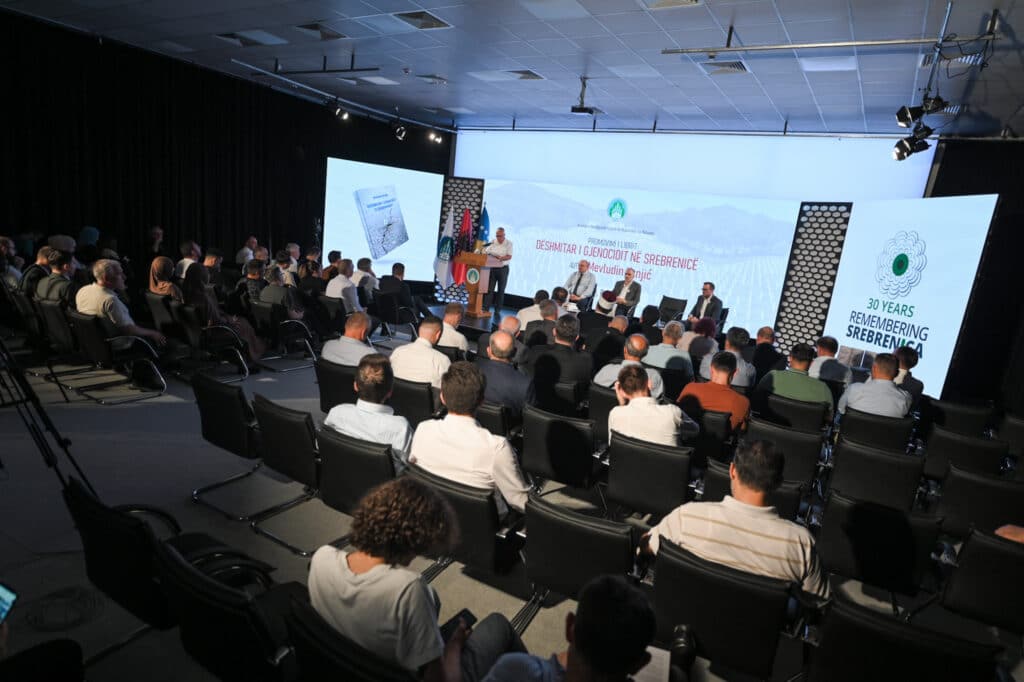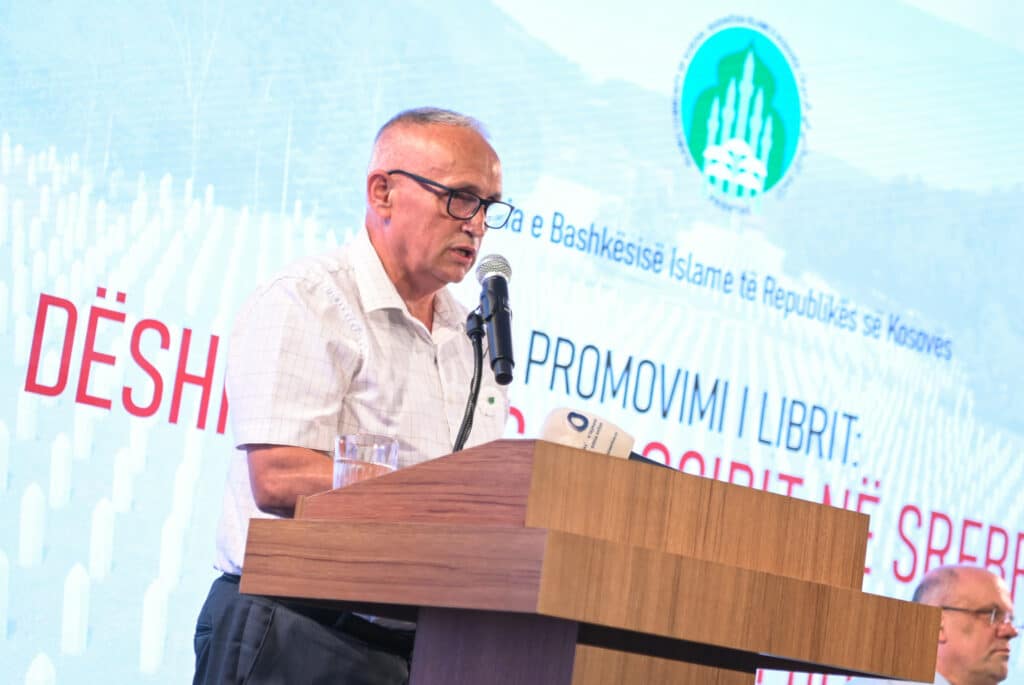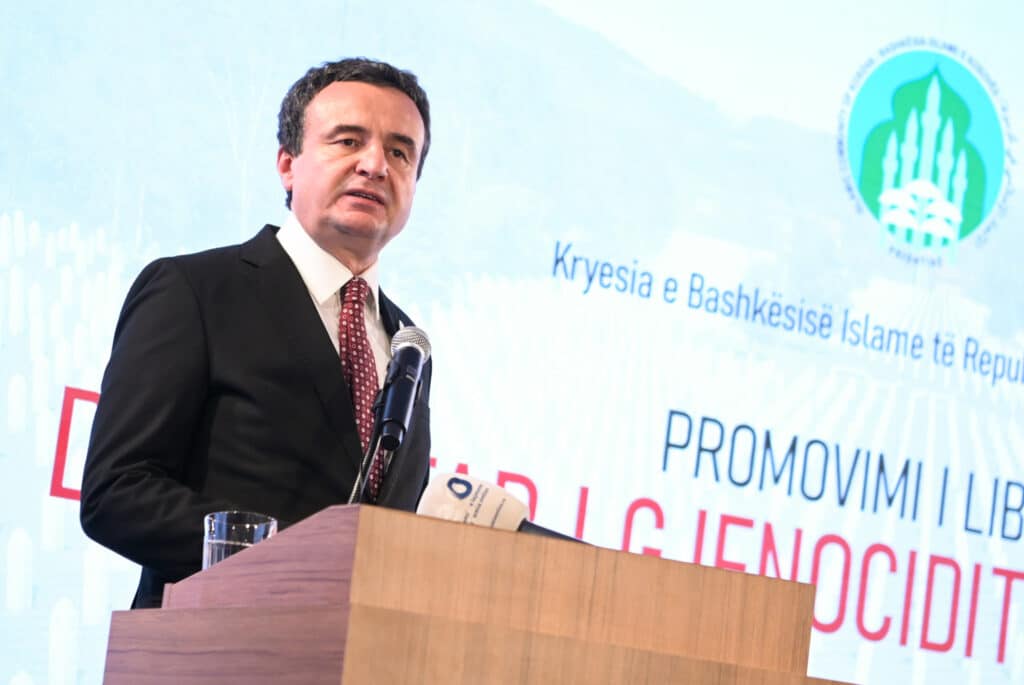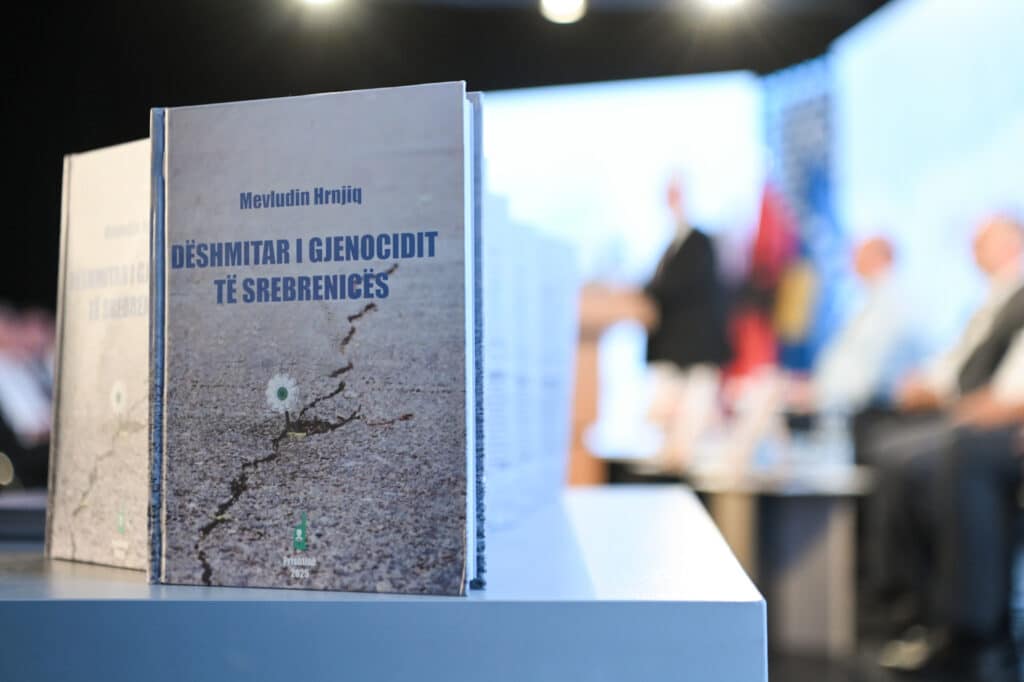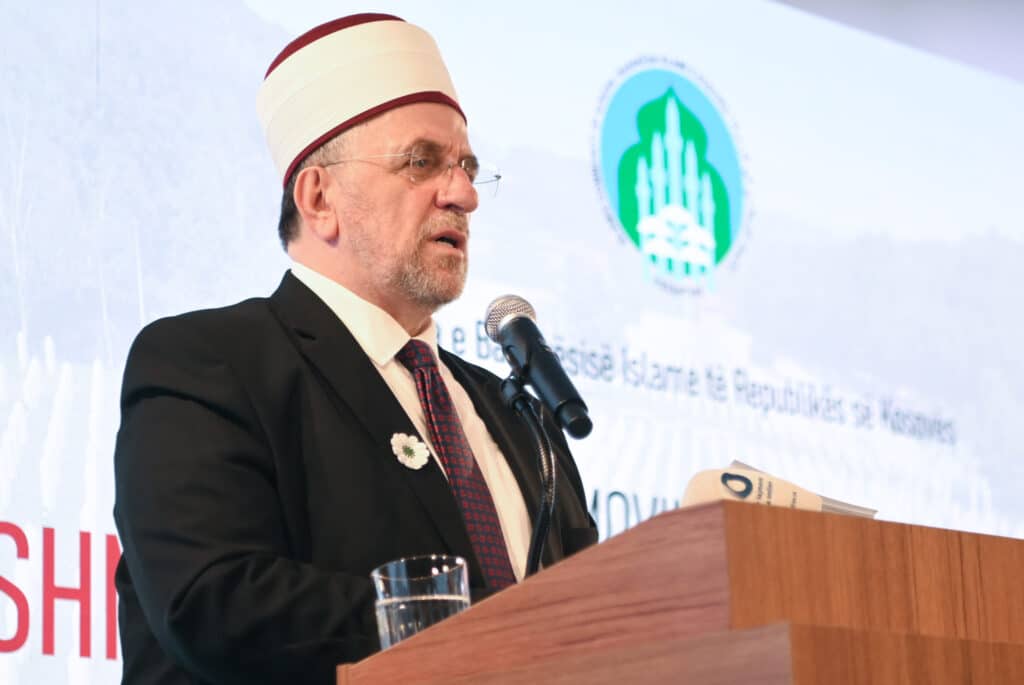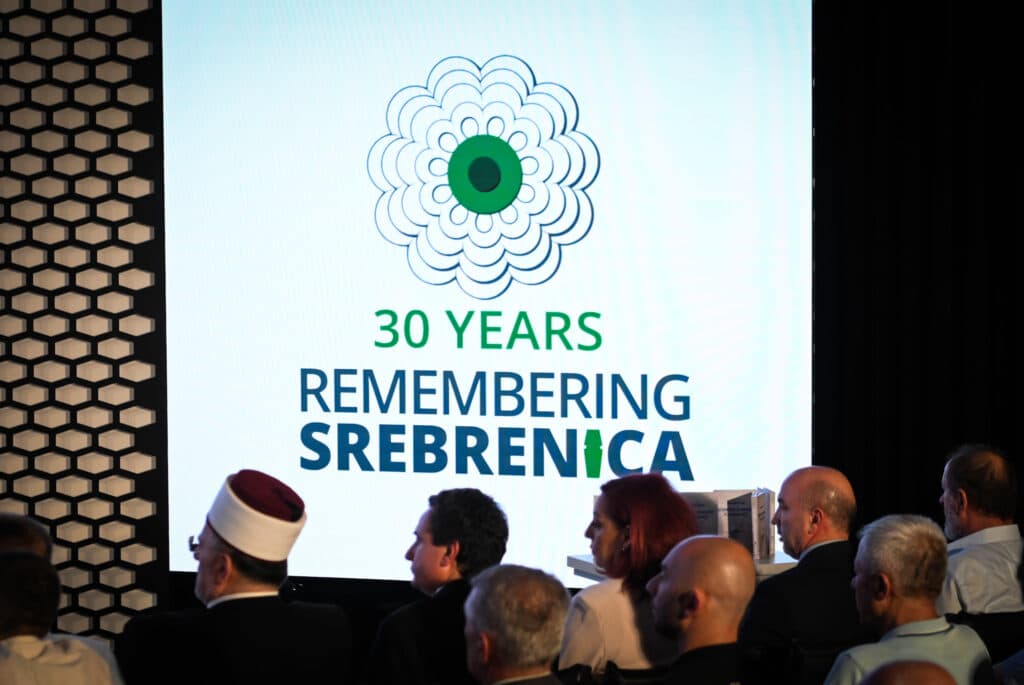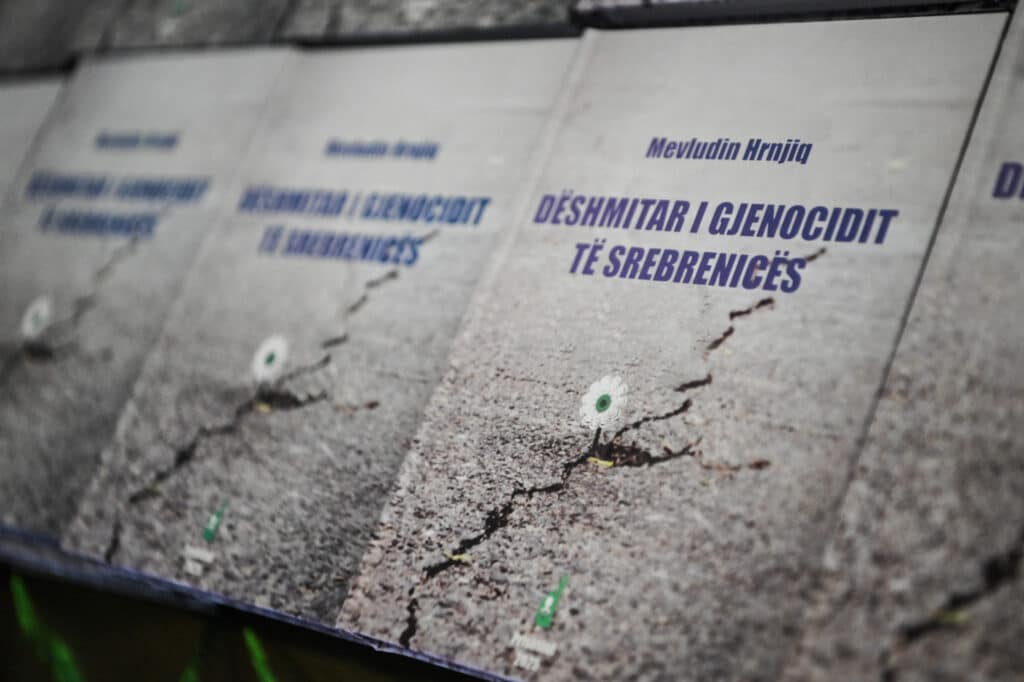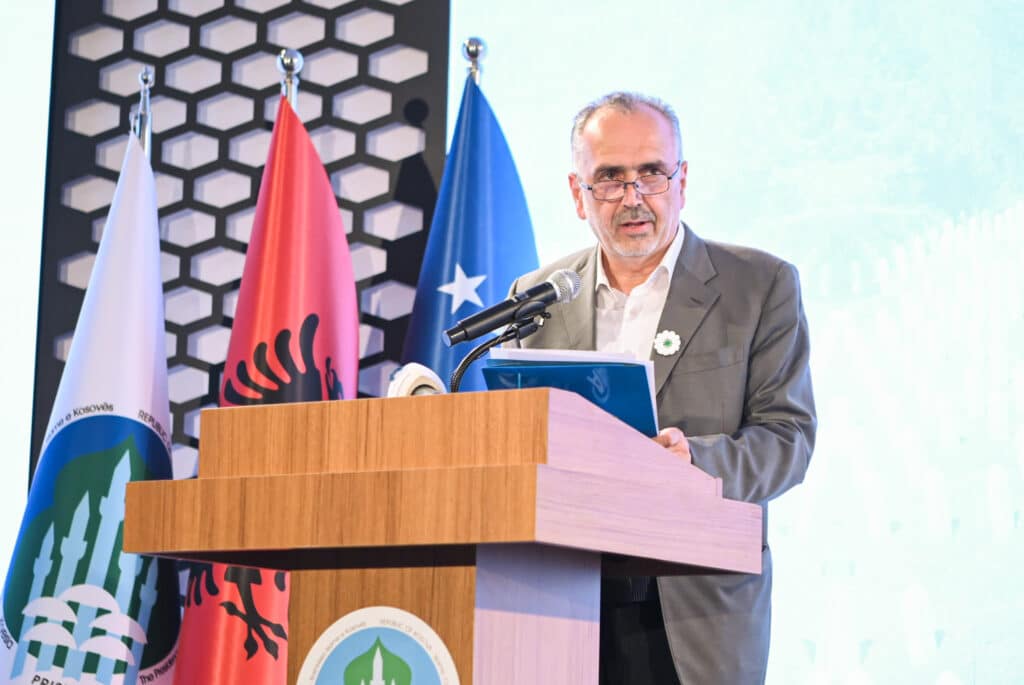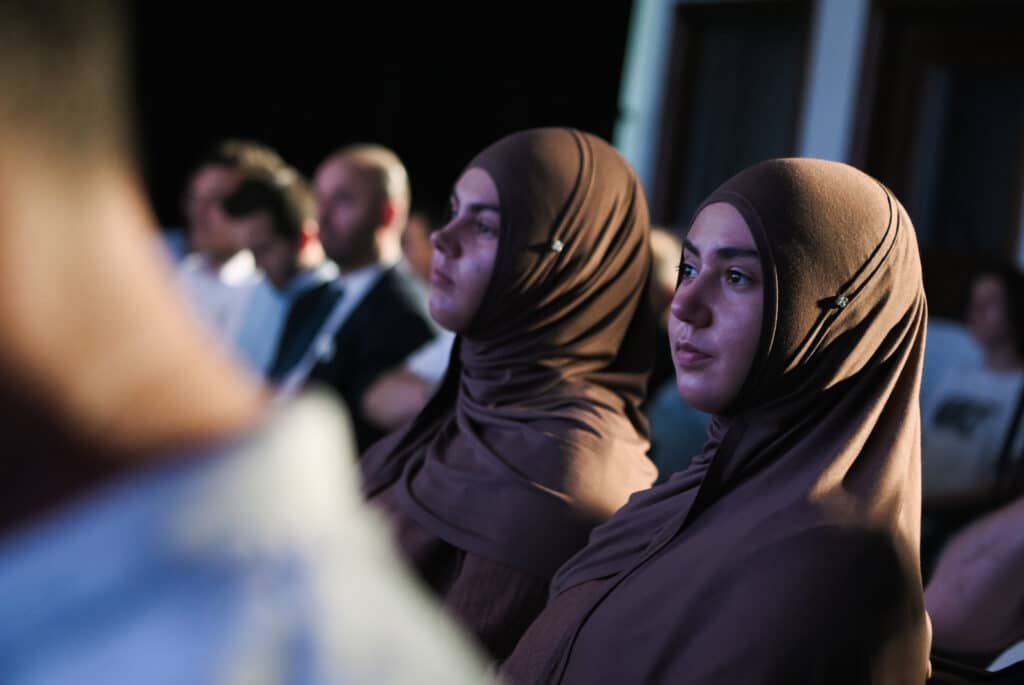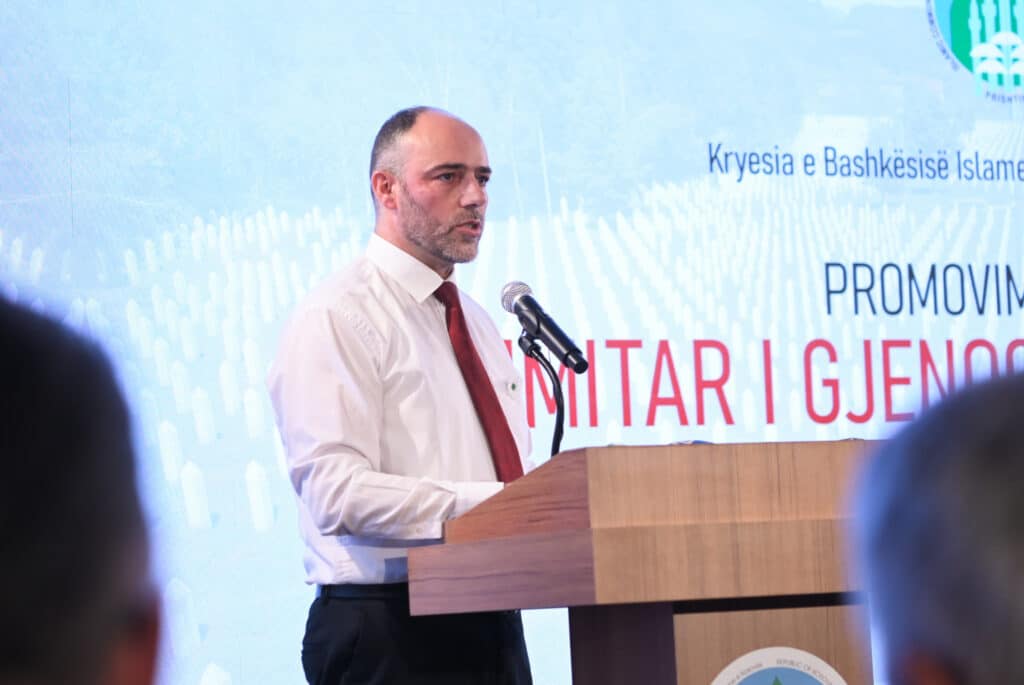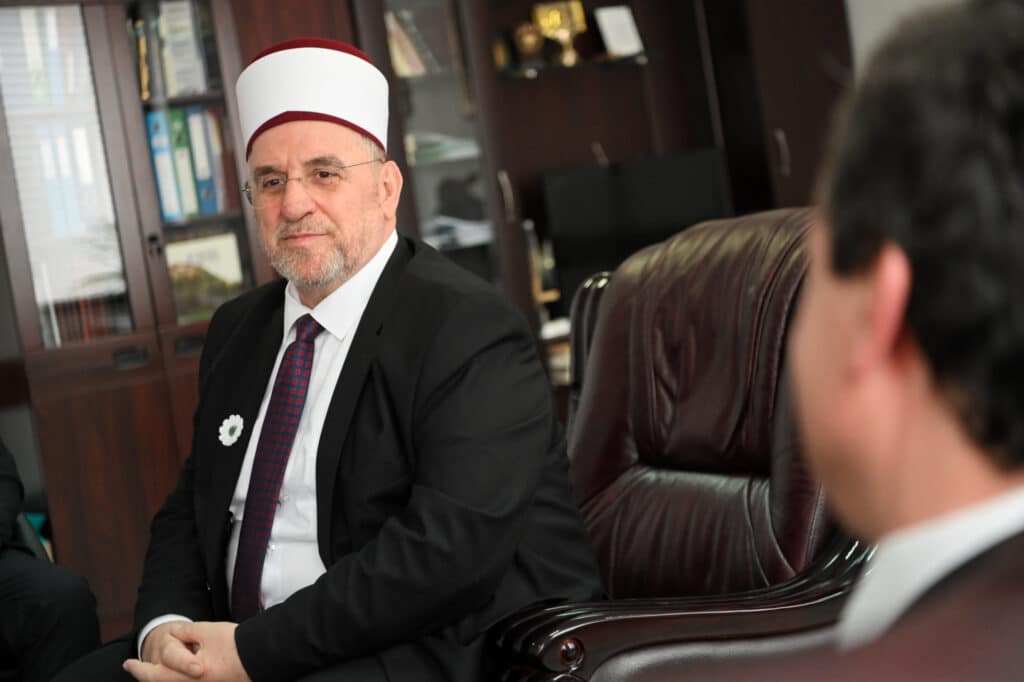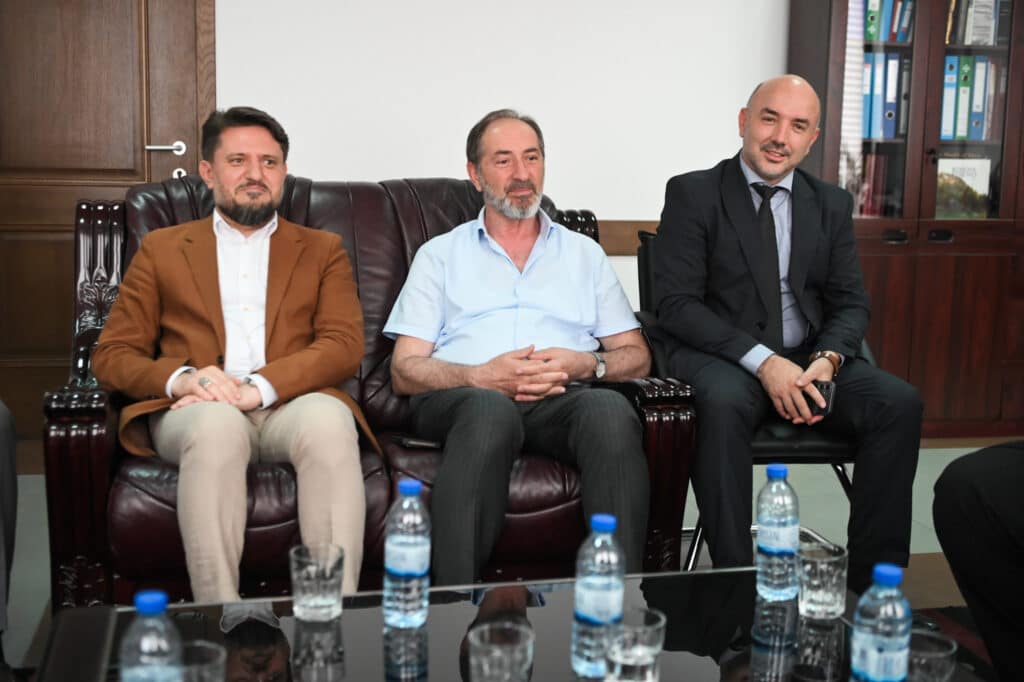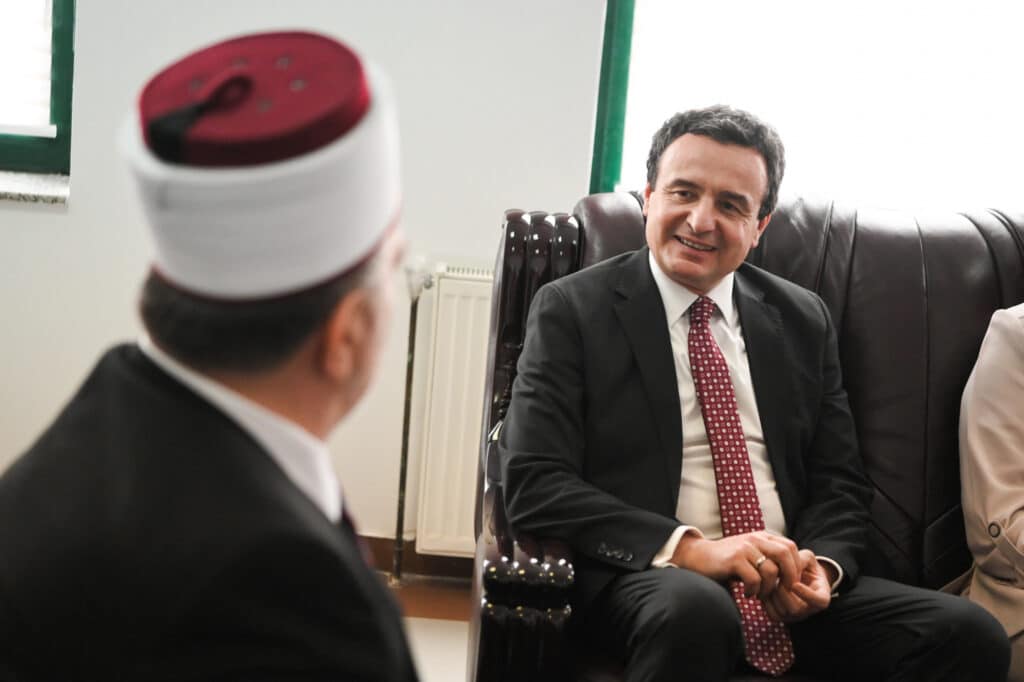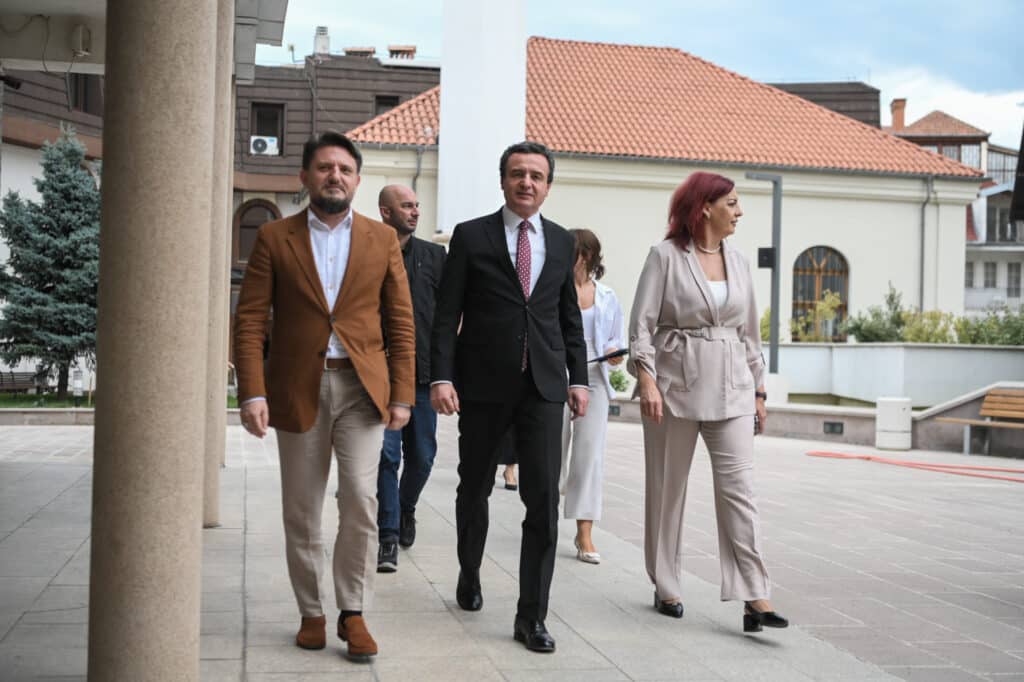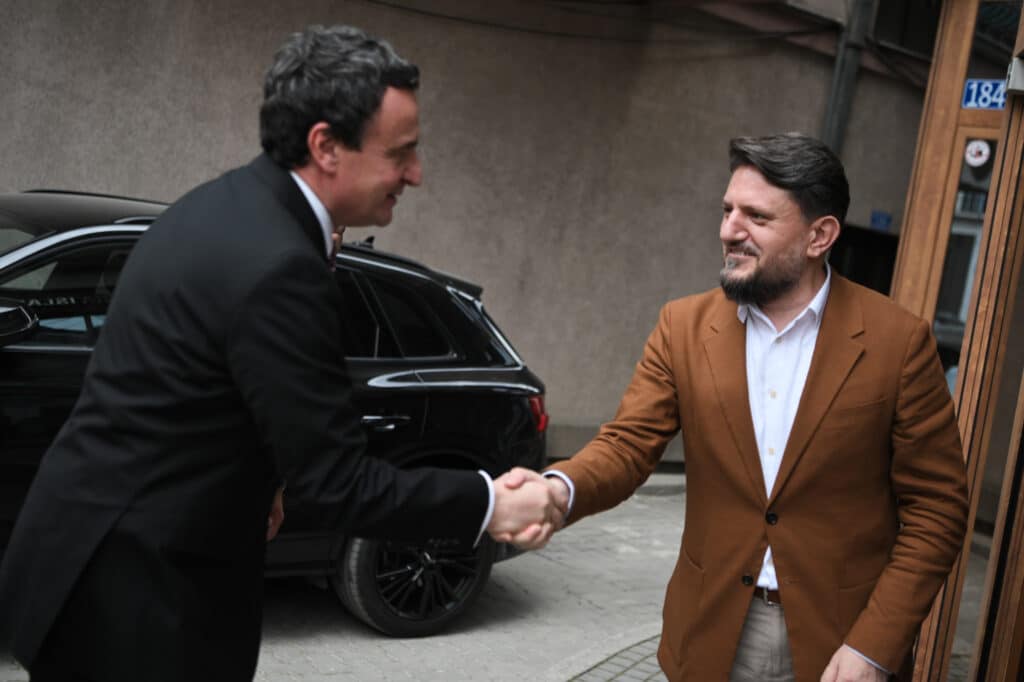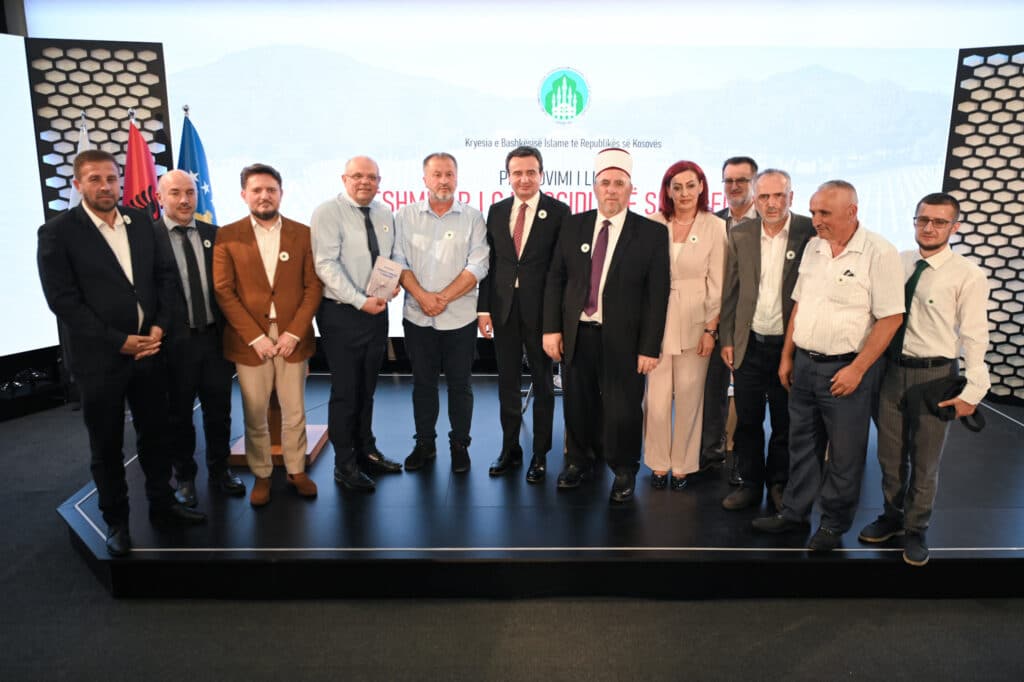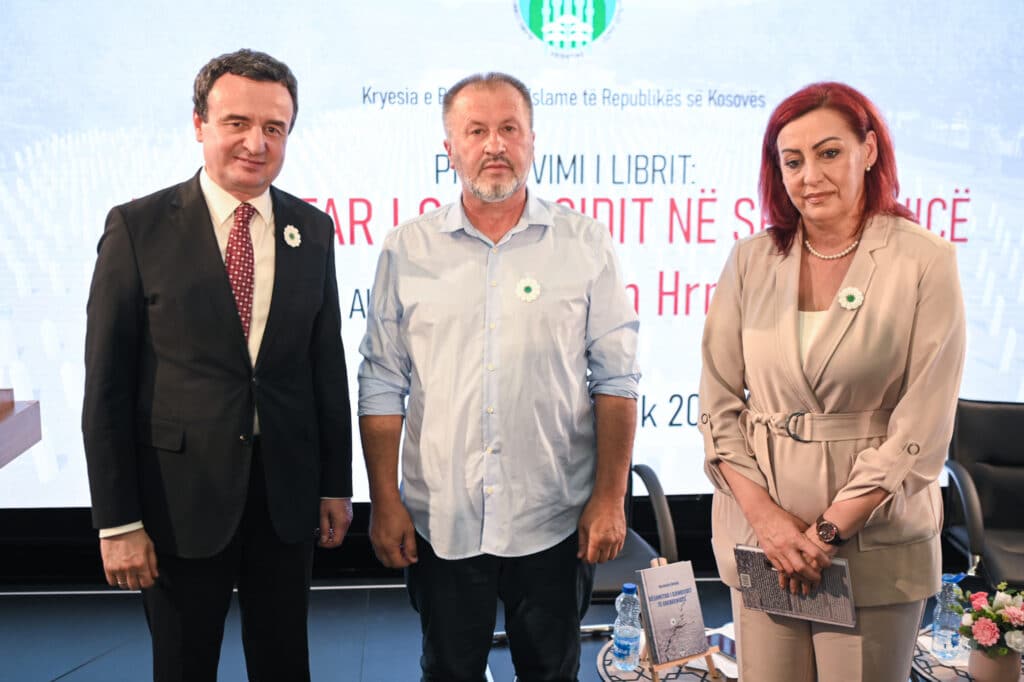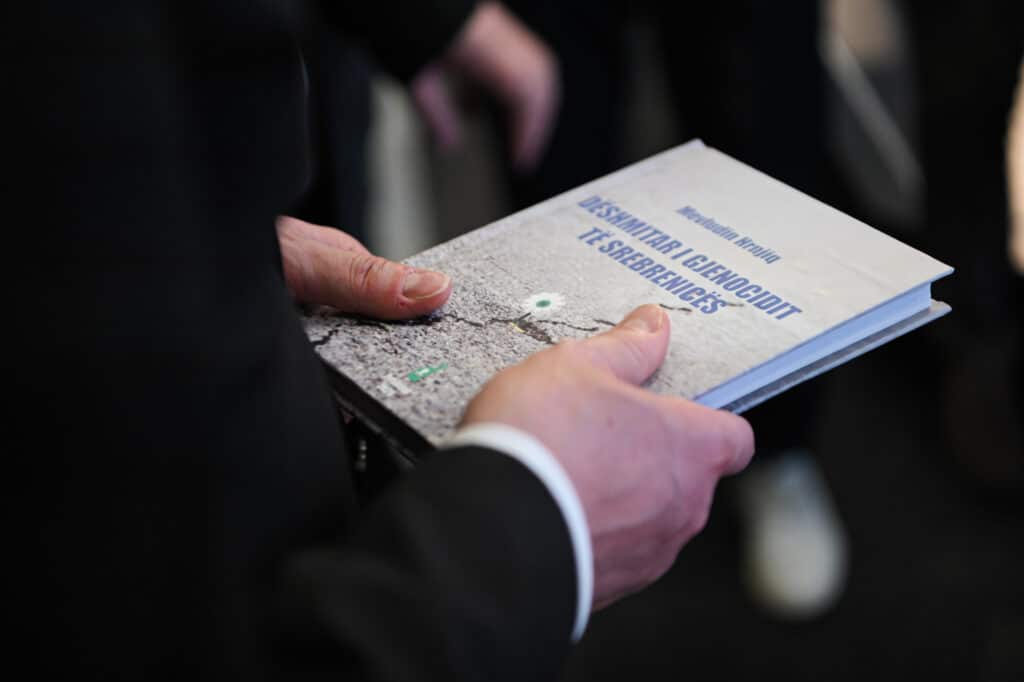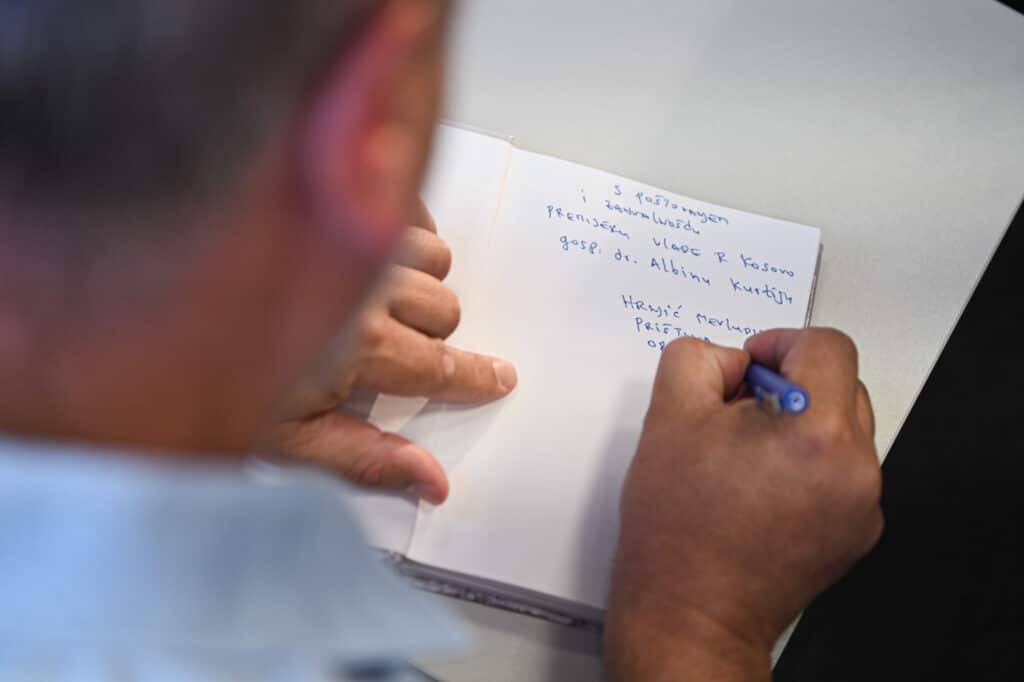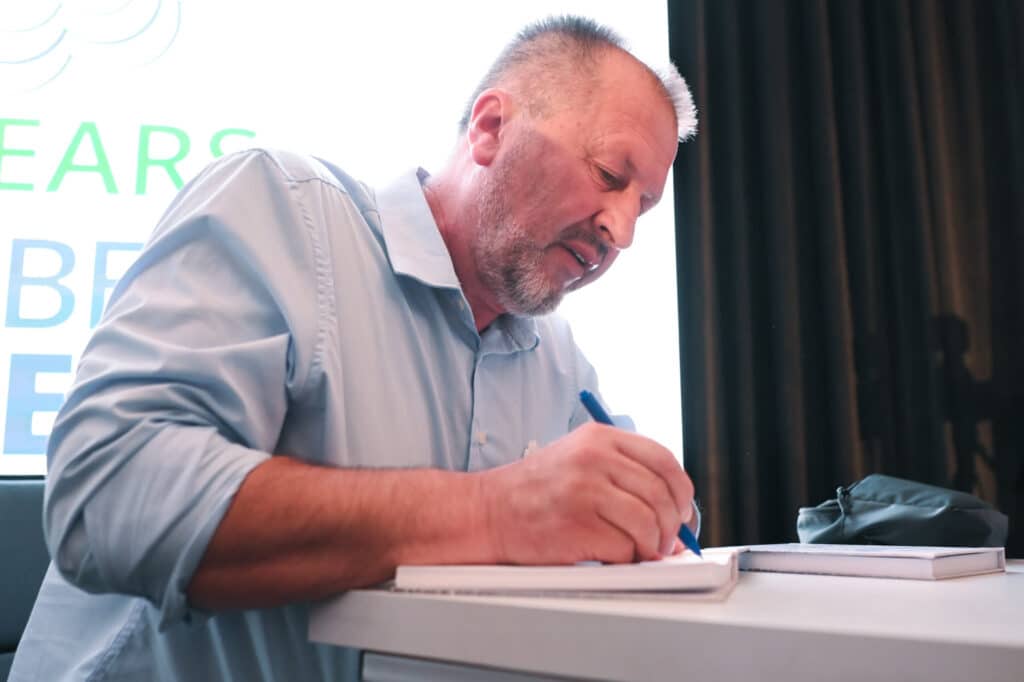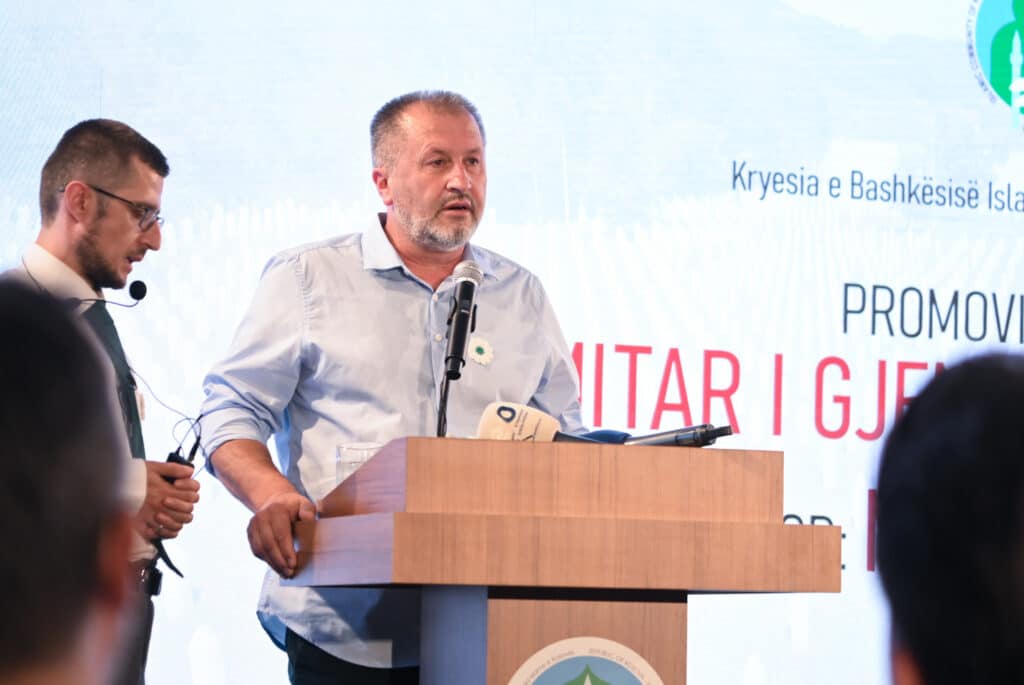Prishtina, 8 July 2025
The Acting Prime Minister of the Republic of Kosovo, Albin Kurti, took part in the promotion of the book Eyewitness to the Genocide in Srebrenica, authored by Mevludin Hrnjiq, an imam from Bosnia and Herzegovina.
Recalling this open wound of Europe, Prime Minister Kurti said that through this event, we demonstrate that remembrance is an act of resistance, and that the written word is a vow not to forget. Regarding the book titled Eyewitness to the Genocide in Srebrenica, he stated that it is a memorial stone placed upon a still-bleeding wound — the voice of a man who survived in order to speak out, to remember those who could not. And today, that voice also speaks in Albanian, so that remembrance may find strength in our country as well.
“Mr. Hrnjiq, please accept our deepest gratitude for your courage in writing this book, in bringing the voice of Srebrenica here, near us. Welcome to Kosovo — a country that understands and feels your pain as its own. Because in the silence that follows genocide, every word that tells the truth is a light that illuminates our collective memory,” said Prime Minister Kurti.
In his address, Prime Minister Kurti recalled July 1995, when under the command of Ratko Mladić, Serbian forces killed 8,372 Bosniak men and boys. He said this was more than a massacre — it was an attempt to erase a people, a culture, a spirit. It was genocide. And the genocide in Srebrenica is a crime that belongs to all of humanity, a pain that knows no borders, and a responsibility that cannot be forgotten.
The Prime Minister added that in Kosovo, every July, Srebrenica is remembered as a wound that speaks for us too — because, like the Bosniaks, the Albanians of Kosovo endured in the same decade the same brutality, the same effort at erasure, the same crime that bears the gravest name history can give: genocide.
“In acknowledging the suffering of the Bosniak people, in 2021, our Assembly passed a resolution condemning the genocide in Srebrenica. Last year, during the 212th meeting of the Government of Kosovo, we declared 11 July as a Memorial Day in remembrance of the Srebrenica Genocide. Year after year, we strive to keep the memory alive — not only as a political duty, but as a human obligation,” he said, adding that the source of this crime cannot be confined to Bosnia and Herzegovina, for its roots lead to Belgrade — to the heart of a state policy that sowed hatred and death.
In conclusion, the Prime Minister said that every eyewitness like Mr. Hrnjiq and every book like the one presented today is a testimony that must be honored and upheld — because remembrance is the path to justice, and justice is the path to true peace.
Full speech of Prime Minister Kurti:
Dear Deputy Prime Minister of the Republic of Kosovo for Minority Affairs and Human Rights, Ms. Emilija Rexhepi,
Honorable Mufti of Kosovo, Mr. Naim Tërnava,
Esteemed Mr. Mevludin Hrnjiq, eyewitness to the Srebrenica massacre,
Honorable Mr. Azmir Jusufi, translator of the book being promoted today, and Mr. Ramadan Shkodra, editor of this publication,
Honorable Member of Parliament of the Republic of Kosovo, Mr. Rasim Demiri,
Dear former Minister of Health, Dr. Ferid Agani,
Respected scholars who have engaged with this book — Mr. Hysen Matoshi from the Albanological Institute, Mr. Durim Abdullahu from the University of Pristina, and Mr. Sylë Ukshini,
Dear Dean of the Faculty of Islamic Studies, Professor Islam Hasani,
Dear professors and students of the Faculty of Islamic Studies,
Distinguished officials of the Islamic Community of the Republic of Kosovo,
Ladies and gentlemen, brothers and sisters, friends of remembrance and justice,
Today, in the heart of Prishtina, we are commemorating one of Europe’s open wounds. We are showing that memory is an act of resistance, and that the written word is a pledge never to forget.
The book Eyewitness to the Genocide in Srebrenica, authored by survivor Mevludin Hrnjiq, which has just come off the press and is being presented here before us today, is more than a personal account. It is a memorial stone placed upon a still-bleeding wound. It is the voice of a man who survived to bear witness — to remember those who could not. And today, that voice speaks also in the Albanian language, so that remembrance may take heart in our country too.
Mr. Hrnjiq, please accept our deepest appreciation for your courage in writing this book, in bringing the voice of Srebrenica here to us. Welcome to Kosovo — a land that understands and feels your pain as its own. For in the silence after genocide, every word that tells the truth is a light that shines upon our collective memory.
This month marks 30 years since July 1995, when the darkest night in human history fell upon the land of Srebrenica. Under the command of Ratko Mladić, Serbian forces killed 8,372 Bosniak men and boys. It was more than a massacre; it was an attempt to annihilate a people, a culture, a spirit. It was genocide. And the genocide in Srebrenica is a crime that belongs to all of humanity — a grief that knows no borders and a responsibility that cannot be forgotten.
In Kosovo, every July, we remember Srebrenica as a wound that also speaks to us. Because like the Bosniaks, the Albanians of Kosovo experienced in the same decade the same savagery, the same attempt at erasure, the same crime that history calls by its gravest name: genocide.
I had the opportunity to visit Srebrenica for the first time in 2016. The testimonies I heard from mothers who lost sons, from women who lost husbands — were like screams that pierce through the silence of the world and cannot be forgotten. When I became Prime Minister of Kosovo, we brought this remembrance into our institutions. Recognizing the suffering of the Bosniak people, in 2021 the Assembly of our Republic passed a resolution condemning the genocide in Srebrenica. Last year, in the 212th meeting of the Government of Kosovo, we declared 11 July as a Memorial Day in remembrance of the Srebrenica genocide. Year after year, we strive to keep the memory alive — not only as a political responsibility, but as a human debt.
Because the address of this crime cannot stop at Bosnia and Herzegovina. Its roots lead to Belgrade — to the heart of a state policy that sowed hatred and death. Radovan Karadžić and Ratko Mladić were merely the hands that carried out the plan, but the mind and spirit of this crime came from higher up. Their convictions stand as evidence that justice may be delayed, but it is not lost.
Every eyewitness like Mr. Hrnjiq, every book like the one we hold today, is a testimony that must be respected and affirmed — because remembrance is the path to justice. And justice is the path to true peace.
I thank all those who contributed to giving voice to this story in the Albanian language. And I thank you for being here — to listen, to remember, and to believe that the truth, however long delayed, always holds the power to speak and to call.
Thank you for your participation and attention!
